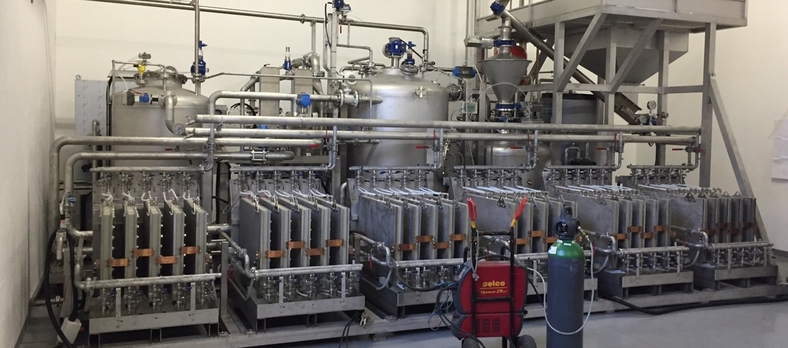The SME RedElec Technologie, a former start-up of The Ark incubator, has just completed the establishment of a pilot industrial installation in Bergamo, Italy. This makes it possible to produce, thanks to an electrochemical process, the indigo dye necessary for the manufacture of jeans. It’s an important first step in the life of the company and one of the culmination of an adventure that started eight years ago.
"The Bergamo facility produces about a ton of 30% indigo a day," said David Crettenand, director of RedElec Technology. “We had a real rush to be ready with our installation for the ITMA show in Milan. It was not won in advance since we started the machine only three weeks ago. But we got there. ”

The young company, based in Riddes, has surrounded itself with different partners to set up this installation, notably Sedo Engineering (organization and operation of the machine), Sedo Treepoint (automation), Milani (electricity and sensors), Lunardon (engineering and welders). "Not everything has been won, of course, but today we are showing that what we dreamed of eight years ago is possible."
During the ITMA fair, this installation was presented to denim professionals from around the world, enthusiastic about this innovation born in Valais. "I have the tears that come to me when I think of all the support I have had from my friends, my family, my shareholders who gave me their trust, RedElec employees who spent sleepless nights alongside me, our board of directors, coaches from The Ark, the Riddes and Valais authorities, ”notes David Crettenand on his Facebook page.
Less pollutants and less costs
In the denim industry, cotton is conditioned in the form of threads before being dyed through coloring baths containing indigo in its soluble form. Indigo, which is the dye used to dye jeans, initially comes in the form of a blue powder that is insoluble in water. Before it can be applied to textiles, it must be converted, by chemical reduction, into a soluble form: leuco-indigo.
In current industrial processes, the transformation of indigo into leuco-indigo causes a considerable quantity of pollutants discharged into the effluents of dyeing establishments and its sensitivity to air causes a deterioration in its quality during storage. The electrochemical process proposed by RedElec Technologie allows savings on raw materials, on the formulation of indigo, on the reproducibility of the dye, on the treatment of effluents and on the storage of the dye.



